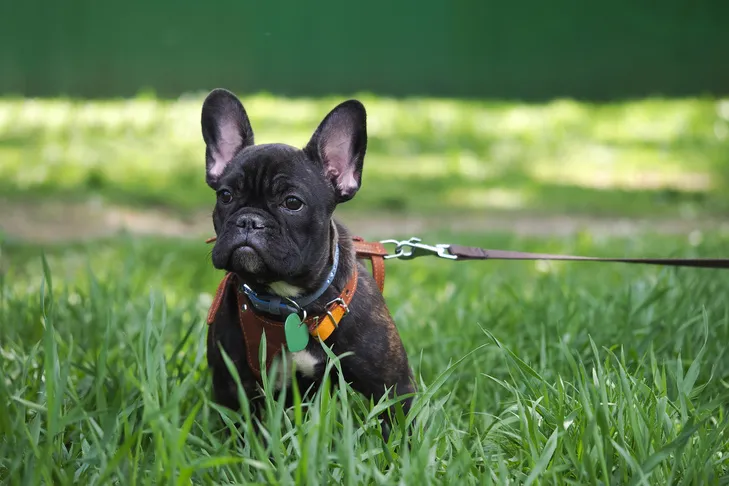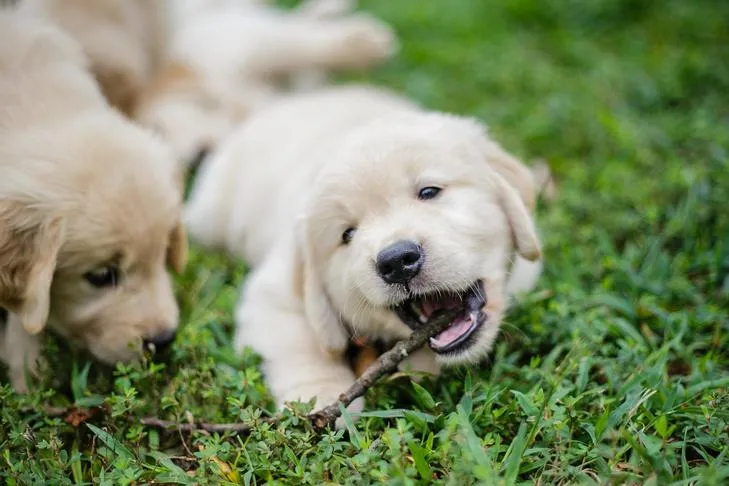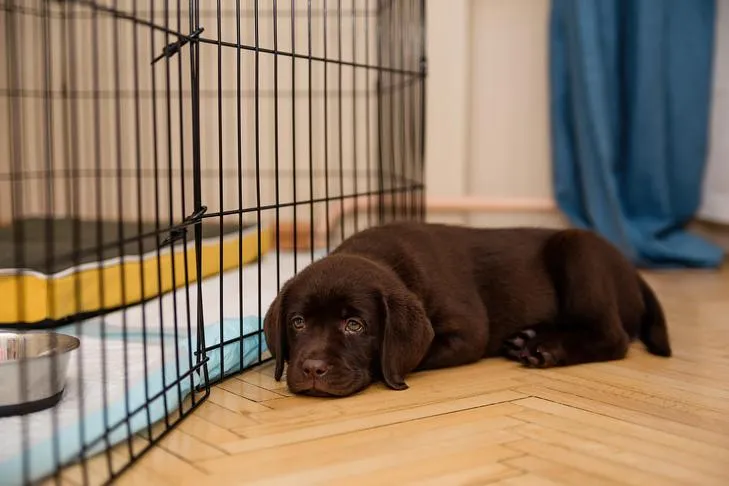Bringing a new puppy into your home is an incredibly exciting experience, but it also comes with a significant responsibility. Just like preparing for a new baby, ensuring your home is fully equipped with the right Supplies Needed For New Puppy essentials is crucial for a smooth transition and your furry friend’s well-being. Puppies require dedicated care, attention, and a safe environment to thrive, making a comprehensive checklist indispensable. From comfort and safety to training and dental care, having these basic items ready will set your puppy up for success and help you navigate those first few weeks with confidence. If you’re looking for a great place to start your shopping, consider exploring a best website to buy dog supplies online.
Comfort and Safety: Essential Gear for Your Puppy
Ensuring your puppy’s comfort and safety from day one is paramount. This category includes items that facilitate safe walks, comfortable rest, and overall security in and out of the home.
Choosing the Right Harness and Leash
For young puppies, a harness is often a better choice than a traditional collar for walks. A properly fitted dog harness distributes pressure evenly across your puppy’s chest and shoulders, preventing strain on their delicate neck, which is especially important if they tend to pull or lunge during walks. Harnesses also provide better control, making training sessions more effective and walks safer for both of you.
Consider reflective harnesses, which feature special strips that enhance visibility in low-light conditions. These are ideal for early morning strolls or evening potty breaks, adding an extra layer of safety. As your puppy grows and learns, you’ll want to teach them to walk politely on a leash without tugging. Training leashes are designed for this purpose, providing durability and the right length for teaching heel commands and controlled walks. Longer training leashes offer more freedom for your puppy to explore in a secure, open space like a backyard, but always ensure they are supervised to prevent entanglement or escape.
 Adorable French Bulldog puppy wearing a reflective harness and leash, sitting in vibrant green grass, learning to walk outdoors.
Adorable French Bulldog puppy wearing a reflective harness and leash, sitting in vibrant green grass, learning to walk outdoors.
Creating a Cozy Sleeping Spot
Every puppy needs a dedicated space where they can feel secure and comfortable for naps and nighttime sleep. Just like humans, dogs have individual preferences, so finding the perfect bed might involve a bit of trial and error. Classic dog beds come in countless variations. Bolster dog beds, with their raised edges, can provide a sense of security and help puppies who move a lot in their sleep stay nestled. Elevated dog beds, which lift your puppy off the ground, offer good airflow and are a practical choice for those who prefer a less plush sleeping surface. Other puppies might adore the luxurious comfort of a fluffy dog bed, providing warmth and softness.
For puppies who prefer being closer to the ground, a soft dog blanket or a thinner, orthopedic dog bed might be more appealing. The key is to observe your puppy’s habits and preferences to provide them with the most comforting and secure sleeping arrangement. A comfortable bed is a vital piece of the supplies needed for new puppy puzzle, contributing significantly to their overall well-being.
Training and Enrichment: Nurturing Your Puppy’s Development
Training and mental stimulation are critical for a puppy’s development, helping them grow into well-behaved and happy adult dogs. This section covers items that aid in positive reinforcement, oral health, and safe playtime.
Durable Chew Toys for Teething Puppies
Puppies go through a significant teething phase, which can be uncomfortable for them and potentially destructive for your furniture if not properly managed. Beyond regular adult dog chew toys, you’ll specifically need puppy teething toys. These are designed with softer materials or textures that help soothe sore gums and provide relief from teething pain. Offering a variety of safe, appropriate chew toys is an excellent way to redirect their natural chewing instincts and keep them happily occupied, preventing them from chewing on inappropriate items around the house.
High-Value Training Treats
Early in life, your puppy will be learning a vast array of new commands, behaviors, and routines. Positive reinforcement is the most effective training method, and high-value training treats are indispensable for this. Experiment with different types of treats to discover what your puppy finds most motivating. Small, soft, and easily digestible treats are generally best for training sessions. Some treats are even formulated to aid in puppy teething, combining two essential needs into one rewarding item. Consistent use of treats during training helps solidify good behaviors and builds a strong bond between you and your puppy.
 Playful Golden Retriever puppy happily chewing a natural stick on a grassy lawn, ideal for teething relief.
Playful Golden Retriever puppy happily chewing a natural stick on a grassy lawn, ideal for teething relief.
Starting Early with Dental Hygiene
Establishing a dental care routine early in your puppy’s life is not only beneficial for their long-term health but also helps them become accustomed to the process. Regular dental care can prevent plaque buildup, bad breath, and more serious dental diseases later on. While dog toothbrushes are a primary tool, they aren’t the only option. Puppy dental water additives can be mixed into their drinking water to help reduce plaque and freshen breath.
Dog dental treats are another helpful tool, designed to scrape away plaque as your puppy chews. For a quick clean, dog dental wipes, available in both traditional wipe and finger brush forms, are excellent for gently cleaning your puppy’s teeth and gums. Starting these habits now will make future dental care much easier for both of you.
House Training and Boundaries: Making Your Home Puppy-Proof
House training is one of the most significant challenges for new puppy owners. Having the right tools on hand can make this process much smoother and less stressful.
Housetraining Essentials
Effective housetraining requires consistency and the right supplies. A crate is an invaluable tool for reinforcing a regular potty schedule, as dogs naturally avoid soiling their sleeping area. Puppy pads can be useful, especially in the initial stages or for apartment dwellers, providing an indoor designated potty spot. However, the ultimate goal is outdoor potty training, so use pads judiciously.
Accidents will happen, and a urine detector, often a UV light, can be incredibly helpful for locating dried urine stains that might not be visible to the naked eye. This ensures you can thoroughly clean all soiled areas, eliminating lingering odors that might attract your puppy back to the same spot. And, of course, for walks and outdoor potty breaks, always have plenty of poop bags on hand for responsible cleanup. For puppies on the go, a soft dog crate for car can also be a game-changer for safe travel and reinforced den training.
Setting Up Safe Spaces and Boundaries
When you first bring your puppy home, it’s wise to limit their access to certain areas. This helps prevent accidents, protect your belongings, and teach them boundaries. Crating your puppy for supervised periods or using puppy gates to restrict access to specific rooms are effective strategies. As they mature and learn the rules of the house, you can gradually expand their freedom. Many owners find dog pens for sale near me helpful for creating a safe, contained play area within a larger room.
If your puppy loves to jump onto surfaces like your bed or couch, a dog ramp or dog stairs can make these leaps easier and safer, reducing strain on their growing joints. These are particularly useful for small breeds or puppies prone to joint issues.
 Young Labrador Retriever puppy relaxing comfortably on a rug in a home setting, near its open soft dog crate, indicating a safe sleeping and resting area.
Young Labrador Retriever puppy relaxing comfortably on a rug in a home setting, near its open soft dog crate, indicating a safe sleeping and resting area.
Nourishment and Feeding: Fueling Growth
Proper nutrition is fundamental for a growing puppy, and the right feeding accessories are just as important as the food itself.
Selecting the Best Food Bowls
Your puppy will grow, and for some breeds, this change is remarkably fast. While providing them with high-quality puppy food, they’ll also need appropriate food and water bowls. Elevated dog bowls can be an excellent choice, especially for larger breeds or puppies prone to neck strain, as they allow for a more natural eating posture. However, bowls can and should adapt to your dog’s growth. If you anticipate your puppy growing into a large adult, consider an adjustable dog bowl that can be raised as they get taller, accommodating them through all stages of life. Having dedicated puppy food and water bowls is a non-negotiable part of your puppy supply list.
Conclusion
Welcoming a new puppy into your family is a joyous occasion that requires careful planning and preparation. By assembling all the necessary supplies needed for new puppy ahead of time, you create a nurturing and secure environment that fosters their development and helps them settle in quickly. From choosing the right harness and leash for safe walks to setting up a cozy sleeping area, providing appropriate chew toys, and implementing a consistent training routine with treats, each item on this checklist plays a vital role in your puppy’s health and happiness. Remember, patience, consistency, and love are the most important tools you can offer your new furry companion. Consult your veterinarian for personalized advice on nutrition and health specific to your puppy’s breed and needs. For those still considering where to find their new family member, exploring options at a reputable pet store that sales dogs near me can be a good starting point.
References
- AKC Puppies – American Kennel Club
- How Do You Raise A Confident Puppy? – AKC
- Puppy Teething And Nipping – AKC
- Potty Training Your Puppy: Timeline and Tips – AKC
- How To Potty Train a Puppy – AKC
- How To Crate Train Your Dog In 9 Easy Steps – AKC
- Largest Dog Breeds – AKC
